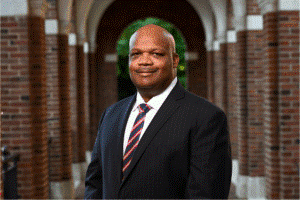
American Cancer Society and Four Historically Black Colleges and Universities Announce Groundbreaking Diversity in Cancer Research Program to Improve Diversity, Equity, and Inclusion
NNPA Newswire
The American Cancer Society (ACS), along with four historically black medical schools including Charles Drew Medical School, Howard University, Meharry Medical College, and Morehouse School of Medicine, today announced a groundbreaking Diversity in Cancer Research (DICR) Program to help improve diversity, equity, and inclusion in the cancer research field.
The inaugural initiatives of the overarching program include DICR Institutional Development Grants. The four HBCUs have received DICR grants in a pilot program for 2021-2022.
The awards provided through the DICR program are unique in cancer research.
They provide a large amount of salary support for the four colleges to select clinical faculty who need more dedicated time for their cancer research and scholarly activities.
They also fund other student and postdoctoral programs and underpin the awards with career development funds and mentorship by established American Cancer Society Professors.
The grants will build sustainability for both clinical and scientific cancer-focused careers, launching or sustaining the careers of 104 individuals by 2025.
The impactful program will create a more inclusive research environment to address health disparities more effectively and could lead to targeted recruitment efforts focused on bringing people of color into clinical research protocols.
Establishing a research community that is made up of a diverse group of people is vital to ensuring scientific excellence.
“The American Cancer Society is committed to launching the brightest minds into cancer research and to reducing health disparities,” said Dr. William Cance, American Cancer Society Chief Medical and Scientific Officer.
“To accomplish this, we believe it is essential to invest in the minority workforce and their dedicated efforts to solve disparities and establish equity in cancer care.”
“There are many reasons the Black community continues to experience disparities in cancer care outcomes. But one of the most critical factors behind the imbalance, and one of the most promising paths to closing the gap, is diversity in cancer care research. We must improve diversity and representation in our laboratories if we expect different outcomes in our hospitals,” said Dr. Wayne A. I. Frederick, president of Howard University.
“As a cancer surgeon and as the president of an HBCU, I believe the Diversity in Cancer Research Program will prove to be pivotal in altering the field of cancer care research and improving cancer care outcomes for Black Americans. I am deeply appreciative of the American Cancer Society’s efforts behind this initiative.”
Data show that African Americans and Black people, Hispanics and Latinos, indigenous people and native Hawaiians and other Pacific Islanders are underrepresented in grant funding.
Fewer than 2% of applicants for the National Institute of Health’s principal grant program come from Black/African Americans, and fewer than 4% from Hispanic/Latino populations.
“We are incredibly excited about this new program with the American Cancer Society,” said Dr. James E.K. Hildreth, Ph.D., MD, President and CEO of Meharry Medical College.
“There is a significant imbalance in the representation of minority populations in clinical research which has led to poorer outcomes for specific racial and ethnic minority groups. To eradicate the varying health disparities that affect these populations, we must prioritize diversifying clinical trials and those who conduct trials to ensure treatment is safe and effective.”
This is a fantastic step to ensuring minority populations receive effective treatment and provides great opportunities for our students and faculty to engage in cancer research,” Dr. Hildreth stated.
“The development of diverse, highly competitive, and independent research faculty has been a goal at CDU since its inception 55 years ago,” shared Dr. David M. Carlisle, President and CEO of Charles R. Drew University of Medicine and Science, located in South Los Angeles.
“This generous grant from the American Cancer Society will directly support a range of programs towards that goal, including the Center to Eliminate Cancer Health Disparities as well as our Clinical Research and Career Development Program, which provides training and mentoring in health disparities and community-partnered participatory research to minority scholars and junior faculty at CDU. This funding will undeniably help CDU in forming a solid foundation in social justice for future cancer research leaders.”
With the DICR program, ACS has committed to a $12 million investment to support four HBCU medical schools with DICR institutional development grants to fund a four-year program that aims to increase the pool of minority cancer researchers by identifying talented students and faculty from HBCUs.
This program will inform efforts to develop a national program to boost cancer research and career development at minority-serving institutions (MSIs).
These grants are designed to build capacity and enhance the competitiveness of faculty at MSIs when applying for nationally competitive grant support and aid in faculty development and retention.
“Here in Georgia, cancer health disparities exist by age, gender, race, income, education, and access to care, among other factors, with Georgia residents in rural communities experiencing worse cancer health outcomes than their urban counterparts,” said Valerie Montgomery Rice, MD, president and CEO at Morehouse School of Medicine.
“The DICR program will be a much-needed and welcome contribution to our work at the Morehouse School of Medicine Cancer Health Equity Institute, forever changing the field of cancer research. The program will not only ensure diversity and inclusion in research, but address health disparities in diverse communities, and assist in our mission in leading the creation and advancement of health equity.”









